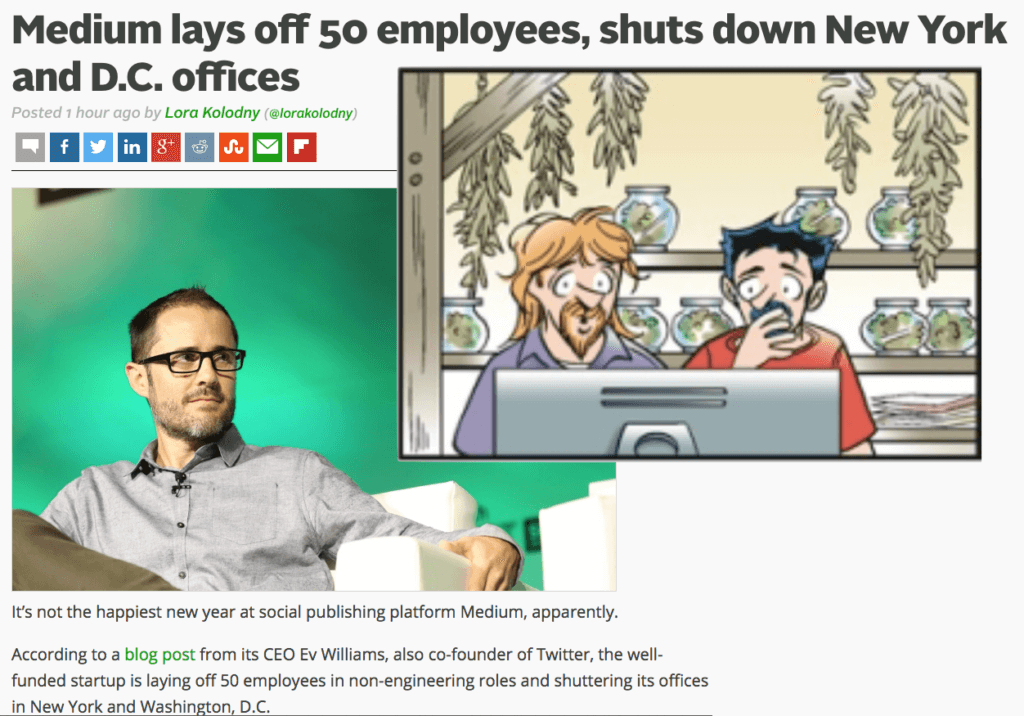Friends don’t let friends give away their content

I’ve been saying this for years, but do people listen? No, they don’t. Don’t give away control of your content.
Let me be clear. By all means share your content for free on any of the gazillion social media platforms available. And if you can get paid appropriately for creating content for others, good for you. Otherwise, make sure that your content remains under your control. Don’t give away control of your content.
Why? Well, here are a few reminders:
- Geocities was once the third most visited site on the internet. 38 million user-built pages! Nothing but a distant memory now, unless you live in Japan.
- Remember when your friends saw everything you posted on Facebook? Not anymore, unless you pay up.
- Ah, those glorious days when you posted something in a LinkedIn group and a significant number of people would read it! Long gone.
Now the blog host site Medium has announced a layoff of a third of its staff. There are millions of posts on the site. Will Evan Williams pull the plug? Will social journalism survive? Who knows?
Get the picture? Posting your original content exclusively on someone else’s platform puts you at their mercy. Don’t do it!
Instead, invest in your own website
There are plenty of great platforms available, and lots of fine web hosting services to run them on. For example, this site uses WordPress on a Dreamhost VPS (Virtual Private Server).
Though this route involves more work and/or money than posting on a third-party platform, you:
- Control your own content. You can add, edit, delete, and control comments on it at any time.
- Determine how your content is presented. Want to insert an offer for your services or products in the middle of a blog post? No problem.
- Retain full rights to your content. (One example: the rights to anything you post to Huffington Post belongs to them. And they don’t even pay you for the privilege of writing for them!)
- Build your own brand, authority, and SEO, not that of a third-party site.
- Maintain access to your content. If your web hosting service goes bankrupt or is unsatisfactory, you can transfer your content to a new host. As long as the internet is up and you pay for your hosting service, your content will be available.
16 years ago, I started the Conferences That Work website you’re reading. As expected, hardly anyone visited initially. As I steadily added content (at least once per week), viewership grew. Today, this site is the world’s most popular website on meeting design and related issues.
As a result, my website is now the largest source of client inquiries for my consulting and facilitating services — something I would never have predicted when it went live in 2009. The ever-growing body of articles on this blog and the inbound links to them continue to build my brand, authority, and SEO.
This has been a PSA from Adrian Segar.

